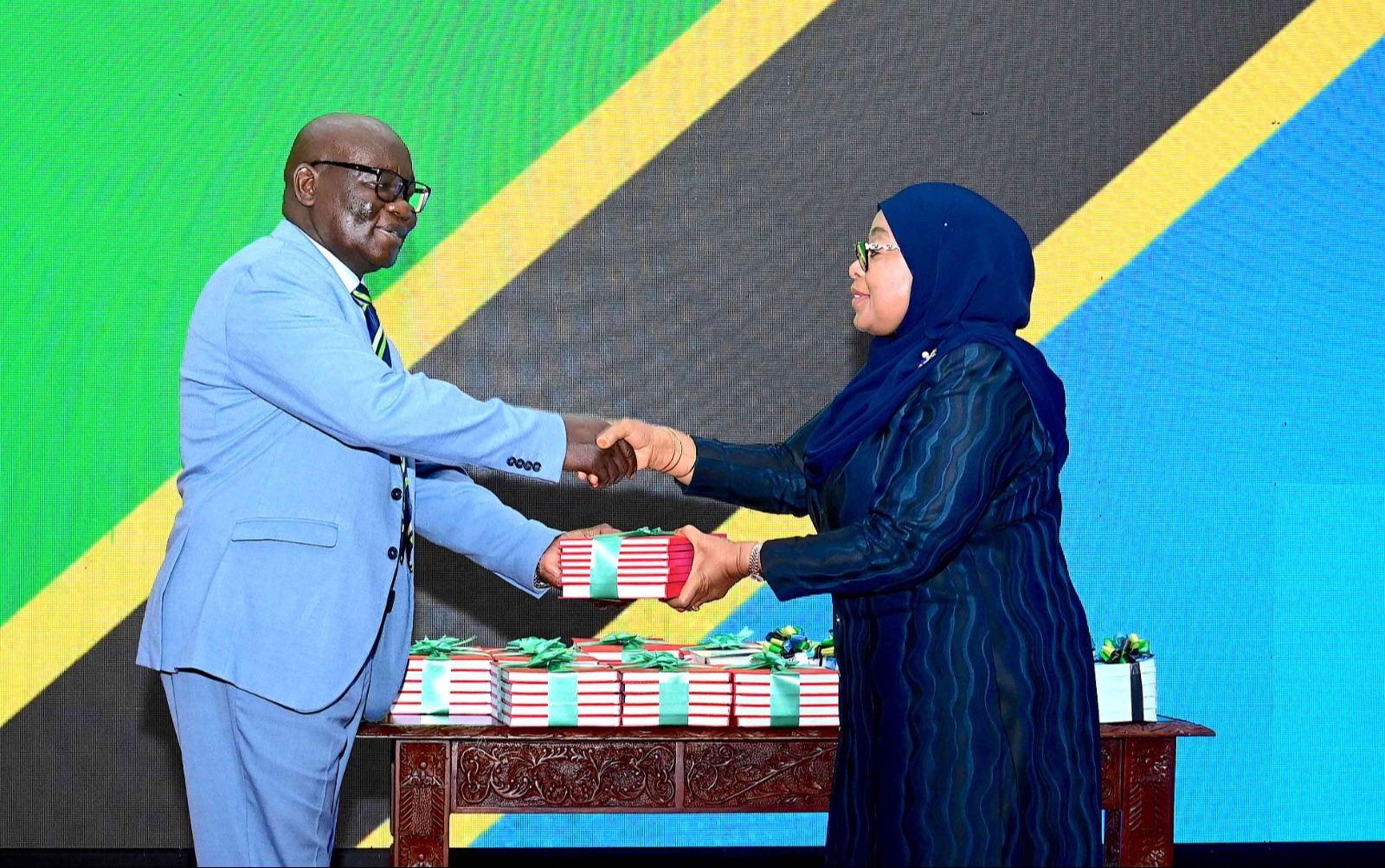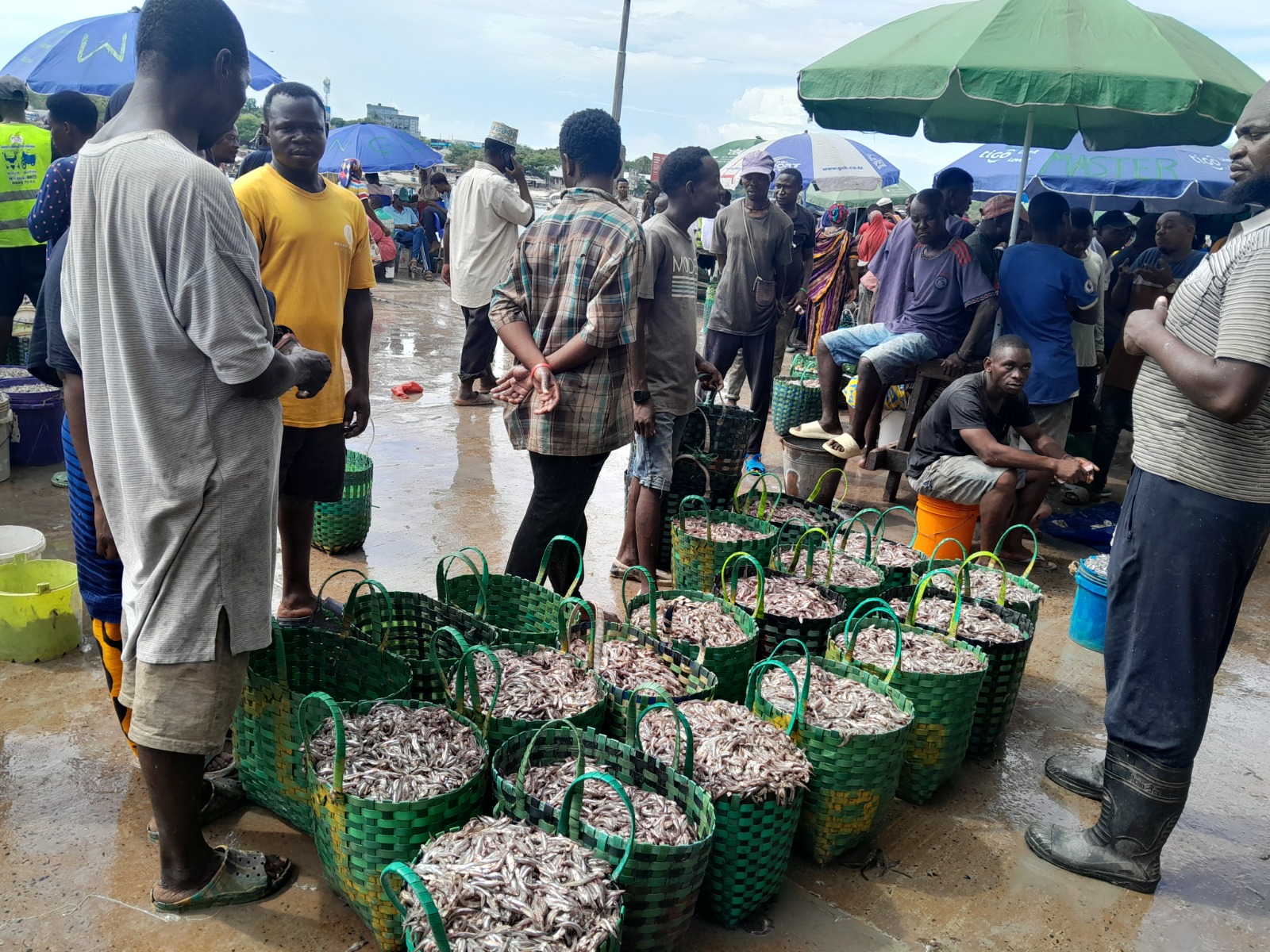WOMEN EMPOWERMENT: Catherine Ruge as a trailblazer in politics, advocacy

CATHERINE Ruge is a well-known figure in the political landscape of Tanzania. A politician and activist, she was born 42 years ago in Serengeti District, Mara Region, where her parents also originated. Growing up in a simple household dependent on agriculture and livestock, she learned the true meaning of resilience and survival.
She and her parents led a simple life, relying on agriculture and livestock keeping as part of their daily existence. She deeply valued her parents' way of life because it taught her the true meaning of survival.
However, tragedy struck in 1989 when she lost her father at the age of six. Despite the hardships, Catherine became the first woman from her village to complete high school and earn certification as a Certified Public Accountant (CPA) through the National Board of Accountants and Auditors (NBAA) in Tanzania.
Her journey in politics was aspired by Suzan Lyimo, the Chairperson of Chadema's Elders' Council, Janeth Mbene, a CCM member who also served as the Deputy Minister for Industry, Trade and Marketing due to their previous engagements. Her political activism was shaped by the life experiences she went through.
Escaping FGM
Catherine recounted how she escaped Female Genital Mutilation (FGM) after fleeing from an arranged ritual. She had witnessed many girls suffer excessive bleeding after undergoing the procedure, with some even losing consciousness.
FGM is described as a practice that manipulate, alter, or remove the external genital organs in young girls and women and this harmful work is being performed using a blade or shard of glass by older women with poor medical profession.
The action is widely recognized as a procedure that violates a person's human rights as well as increasing their risk for health complications, and to a large extent is performed in developing countries with the most occurrences reported in sub-Saharan Africa, the Middle East and Asia.
“I was to undergo FGM in 1994 when I was in Standard Five. At that time, my father had already passed away. Back then, it was mandatory for girls to be mutilated. However, after witnessing the excessive bleeding and suffering of her cousins, I was terrified and ran away,” she narrated.
Three days later, a traditional healer was summoned to force her into the ritual. When she refused, she was cursed, with the healer declaring that she would never marry, have children, or find direction in life.
This public humiliation led to her isolation from her family, forcing her to live with other relatives. Despite these challenges, Catherine remained determined to change societal norms.
She served as an ambassador against female genital mutilation and an advocate for menstrual health and hygiene.
Political and social journey
Catherine's political activism led her to establish an organization dedicated to empowering girls and combating gender-based violence. She has made a significant impact in her community, including constructing a modern dormitory at Ring’wani Girls’ Secondary School to support vulnerable students.
Ruge made a history by building a multi-storey modern house in her home village to provide a safe shelter for girls.
Her political journey began in 2010 when she joined the opposition—Chadema. In 2013, she officially embarked on her leadership path whereas she first contested for the position of Finance and Resources Secretary for the Serengeti Zone and won. The zone covers Mara, Shinyanga, and Simiyu regions.
In 2015, she ran for a special parliamentary seat in the Serengeti constituency. In 2016/2017, she won the UN-Empowering Women Champions for Change Award, through which she played a crucial role in educating, training, and mobilizing women at different levels.
Catherine believes that politics enables her to reach a broader audience, particularly women, and influence legislation for positive change. She is widely recognized for her contributions in Parliament, particularly on issues of democracy, environmental conservation, and women's rights.
Breaking barriers for women in politics
Despite facing societal pressure, Catherine has remained steadfast in her political beliefs, rejecting offers to betray her party. She acknowledges that cultural norms often suppress women’s leadership potential and calls for increased female representation in Parliament, advocating for a minimum 50 percent gender balance.
She added that if a woman contests for certain post within her party—Chadema finishes in second or third position, she is automatically nominated and assigned to vie for a constituency.
Within Chadema, she highlights the importance of constituency-based leadership, arguing that special parliamentary seats should be temporary to allow more women to gain leadership experience. She believes that women who start in special seats should transition to vie for parliamentary seats during General Election.
She gave a few examples of women who started in special seats and later won constituency seats, such as Esther Matiko, Esther Bulaya, Janet Mbene and Bonna Kalua who was once a ward counsellor, as well as Halima Mdee. This proves that women have the ability to contest and win in General Election.
“The real obstacle is patriarchy and political parties. If a party genuinely supports a woman, she will win—especially if that party is in power,” Catherine asserted.
Advocacy and achievements
Catherine has been a vocal advocate for education, menstrual health, and the fight against FGM. One of her most notable achievements was her campaign to allow pregnant girls to return to school, which was successfully passed in Parliament.
She also played a crucial role in advocating for the removal of taxes on sanitary pads, a cause she championed in Parliament before the tax was reinstated.
Additionally, she has provided mentorship to numerous young women, helping them rise to leadership positions within Chadema and beyond. Those she mentored have now become leaders, particularly in the Serengeti District, Mara Region and other regions across the country.
One of her notable mentees are Aisha Madoga—Chadema Regional Chairperson for Dodoma. Others areHilda Peter, Chairperson of the Chadema Youth Council for the Central Zone, which covers Singida, Dodoma and Morogoro regions and Rukia Abubakar Mohamed who serves as the Vice Chairperson of Chadema for Pemba and Chake Chake.
“I nurtured them, equipped them with numerous skills to become exemplary and ethical leaders. I am proud of supporting my fellow women,” she said.
Catherine’s efforts have transformed Ring’wani Girls’ Secondary School, where she built a dormitory that has provided a safe environment for students. According to Head teacher Magesa William, the dormitory has significantly reduced cases of early pregnancies and FGM.
In 2022, the first batch of students graduated from this school. A total of 31 girls out of 50 scored Division One, the performance which is directly linked with construction of the dormitory.
Since its construction, 75 students have been selected to join Advanced Level secondary education.
Former student Jack Joseph, now a first year student at the University of Dar es Salaam, credits Ruge for encouraging girls to pursue education.
"2021 was the year many students excelled due to Ruge’s influence. She encouraged us to study hard to achieve our educational dreams. She truly deserves recognition for her efforts,” she said, expressing gratitude to the former Chadema MP for building a dormitory in such an area.
Explaining further on the benefits of girls to study at boarding schools, Joseph told The Guardian that at home, girls are often burdened with household tasks such as herding livestock, collecting firewood, and babysitting younger siblings. Additionally, walking long distance to school poses a number of risks to the girls.
A mother’s pride
Catherine’s mother, Nchota Makore, takes immense pride in her daughter's accomplishments. “She has changed lives, built roads, and given young girls a future. I strongly oppose FGM, and I support Catherine in her fight against harmful practices,” she said.
Catherine’s ultimate goal is to become the first female Member of Parliament for Serengeti Constituency. Although she contested the seat in 2020, election irregularities prevented her from winning. She remains hopeful that with electoral reforms, she will achieve this dream and continue serving her community.
Through her leadership, Catherine has empowered women, advocated for justice, and brought about lasting change. Her story serves as an inspiration for many, proving that resilience, determination, and a strong vision can break even the most rigid societal barriers.
Top Headlines
© 2025 IPPMEDIA.COM. ALL RIGHTS RESERVED

























